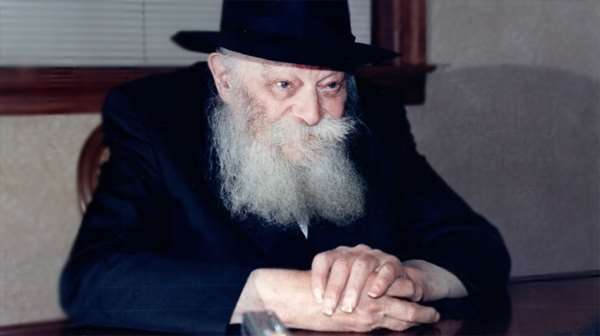Q: What is a Rebbe?
A: A Rebbe does not consider himself as superior to his Chassidim. He merely contains those parts of the souls of his Chassidim that are connected with him. When a Chassid comes to the Rebbe with a problem, he tries to find in the Rebbe the part of his own soul which is included in the Rebbe’s and connect it with his soul — and thus be connected with the Rebbe’s soul. It is through this connection that the Chassid receives his material and spiritual life and needs.
For example, let us take the electric bulb which produces light. The bulb itself is incapable of producing light, however there are electrical power plants stationed in some distant part of the city which generates the necessary power to produce light. There must be a channel through which the power can pass and reach each individual bulb — in addition to the constitution of the bulb which enables it to receive the power from the power source. The channel is a wire which connects the power station to the bulb, and when this connection is opened by turning on the switch the bulb receives the power and will then function.
The same applies to a Rebbe and Chassidim. The Rebbe is the power-plant which produces the needed strength and power to fulfill the commandments and obligations (spiritual) and also conveys the material. The greater the Rebbe is, the more light he will produce... The channel through which the Chassid can receive these necessities is his soul which is connected to the soul of the Rebbe. The sole duty of the Rebbe is to deliver the above mentioned necessities, spiritual and material, to his Chassidim.
Although the Rebbe is also required to fulfill his own bodily functions, that is not his purpose or true function; it is only because his soul is bound with a earthly body which cannot exist without these functions. If one comes to a Rabbi complaining of a headache and the Rabbi gives him an aspirin, we surely won’t say that this is the function of a Rabbi. The same is with a Rebbe when he must carry out the necessary functions of his body.
Q: What is the difference between a Rebbe and a Rabbi?
A: A Rabbi is one who teaches his pupils when they come to him and will answer a question when brought to him. A Rebbe does not wait for you to come to him. He reaches forth among the people and tries to awaken them and inspire them, and tries to find ways and methods to bring them their religion.
Q: Can anyone become a Rebbe?
A: Not everyone can become a Rebbe. One needs something from Above to fill this mission. It is easier when a Rebbe has inherited his position, just as it is easier for one who has inherited a talent to perform and develop his talents than one who has to develop them without immediate inherited talent.
Q: Is the function of Rebbe like that of a psychologist? Can a Rebbe take the place of a psychiatrist?
A: When a psychiatrist speaks to his patients he regards them as objects of study. Though he is interested in curing his patient and in helping him to adjust to life, his approach is to derive not only a healthy being but an accumulation of information about human beings for his further knowledge. A Rebbe gives himself over completely to the person. When one is seeking a solution, the Rebbe does not study him but is more emotionally involved with the person who comes to see him. Only a small part of a Rebbe’s work is like that of a psychologist’s. That is not his primary function.
Yet when one needs aspirins for his cure, the Rebbe will tell him to go to the drug store and buy some, and not try to substitute a prescription with something else. If he needs a psychiatrist to cure his ailment the Rebbe will not try to substitute his cure with another person.
Q: What is the significance of a bracha (blessing)?
A: In the words of my father-in-law [Rabbi Yosef Yitzchok, the sixth Lubavitcher Rebbe], a bracha is like rain (גשמי ברכה). If the soil is plowed and ready to be sown, and one throws seeds into the soil, the seeds will grow and blossom when rain falls upon them. If however, the soil is unprepared the seed finds difficulty in sprouting forth even when there is an abundance of rain. When an individual comes for a bracha and he is emotionally and spiritually equipped, the bracha will help him to grow and blossom into a meaningful individual.
If, however, one is in a deep coma, a good doctor would not abandon his task of trying to awaken him. He would [try] to his utmost to help this individual, even if it means hurting the individual for his benefit. If necessary he will even give shock treatments if he knows that the patient will be revived by that method and that method will help the individual.
